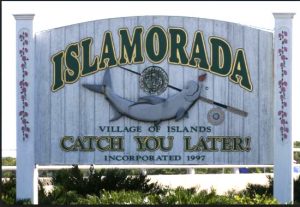Florida Keys Saltwater Fishing
According to the Florida Fish & Wildlife Commision (FWC), Florida is recognized as the “Fishing Capital of the World” based on the number of freshwater and saltwater anglers, amount of time spent fishing, economic impact, diversity of recreational species, international fishing records set here and tourists who use our resources. The most recent National Survey of Fishing, Hunting and Wildlife-Related Recreation (U.S. Department of Interior, 2006) again ranked Florida No. 1 in in-state anglers (2.8 million vs. No. 2 California with 2.5 million), angler expenditures in state ($4.4 billion vs. No. 2 Texas with $3.4 billion), economic impact ($7.5 billion vs. No. 2 Texas with $6.1 billion), angler-supported jobs (75,068 vs. No. 2 Texas with 59,938), and state and local taxes generated by sport fishing ($440 million vs. No. 2 Texas with $392 million).
In addition, approximately 35 percent of all International Game Fish Association records in the U.S. come from Florida (Florida has 4,755 vs. No. 2 Alaska with 1,354, of 13,534 U.S. records, including line-classes). Florida even has more record catches than the next highest country, with 18.5 percent of all IGFA records worldwide. (Australia has 1,530 records, of 25,652 worldwide; Pers. Comm., Jack Vitek, IGFA World Records Department.)
 And then there is Islamorada in the Florida Keys. If you’ve never been to Islamorada, you might think it presumptuous to call itself “The Sport Fishing Capital of the World.” But if you’ve ever fished the waters surrounding the Florida Keys village, you know that it lives up to that name.
And then there is Islamorada in the Florida Keys. If you’ve never been to Islamorada, you might think it presumptuous to call itself “The Sport Fishing Capital of the World.” But if you’ve ever fished the waters surrounding the Florida Keys village, you know that it lives up to that name.
Where else in the world can you go offshore and catch swordfish, sailfish, snappers and groupers, then head to Florida Bay into what’s known as the backcountry and catch bonefish, redfish, permit, snook and tarpon, all in the same day?
Source: Sun Sentinel
If you are not yet convinced the Florida Keys are the place to get your fishing on, below are some of the Florida Keys Saltwater Fish records.
Updated – Conventional Tackle July 1, 2015
Florida Fish and Wildlife Conservation Commission International Game Fish Association 620 South Meridian Street Fishing Hall of Fame & Museum Mailbox MF-OAE 300 Gulf Stream Way Tallahassee, Florida 32399 Dania Beach, Florida 33004 (850) 488-6058 Fax: (850) 488-7152 (954) 927-2628 Fax: (954) 924-4299 |
Source: FLORIDA SALTWATER FISH RECORDS
Certified state record fish must be legally caught using an active hook-and-line method (including a proper license or exemption) by sport fishing methods, identified by a Commission biologist and weighed on a certified scale. Uncertified state records are believed accurate based on reliable witnesses and other evidence but are not certifiable, or they were caught by other than legal sport fishing methods.
To set a new record, you just need to exceed the certified records by the amount specified below; the uncertified records are provided just for information. If you catch such a fish, contact the appropriate regional office. These records are updated as soon as they are verified. To replace a record, versus tying one the difference should exceed the following: (i) nearest one-quarter ounce for fish up to five pounds, (ii) to the nearest one-half ounce for fish more than five pounds and up to 10 pounds, and (iii) to the nearest one ounce for fish more than 10 pounds
